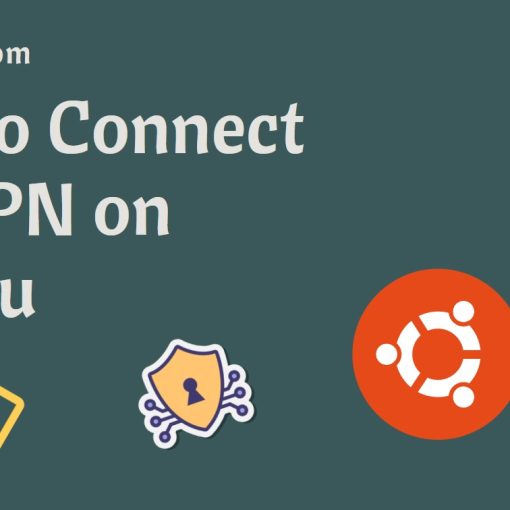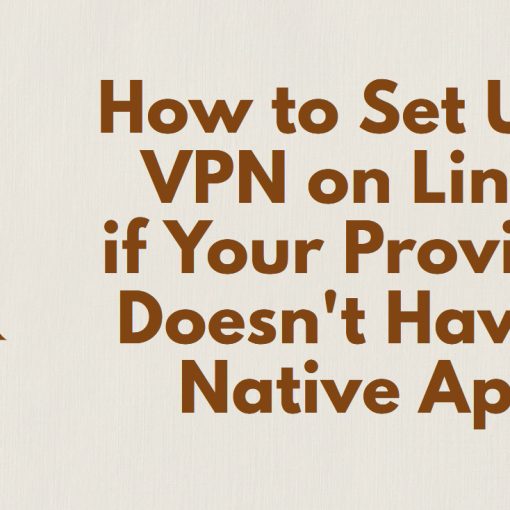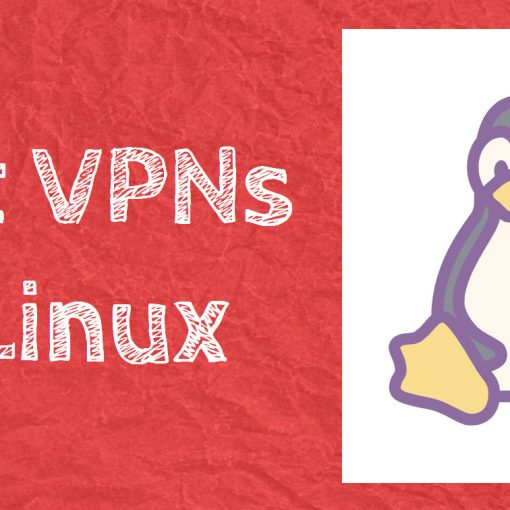Linux is the top choice for security-focused users. However, the online world is full of dangers and people who want to invade your security and privacy. Thus, as an extra precaution, you might consider getting a free Linux VPN.
Linux users are already used to using software that is free. But can you actually trust a service like a VPN that doesn’t charge a penny? In this article, we’ll figure out if getting a free VPN for Linux is truly worth it.
What’s a VPN?
Suppose you’ve been living under a rock and don’t know what a Virtual Private Network (VPN) is. In that case, it’s a powerful online service that creates a secure connection while using the internet. It can hide your IP address, spoof your whereabouts, and encrypt your traffic. This ensures more privacy and security while browsing the web on any Linux distro.
What’s a Free VPN?
As the name suggests, free VPNs are services you can use without paying. Most of them will require you to register by creating an account. Plus, you’ll get some security and privacy features that will keep you safe. However, they are very limited compared to premium VPNs you can find on VPNPro.
In addition, some free services might do more harm than good. That’s not to say that premium VPNs won’t or can’t do any harm, like some examples. Chances are if it’s a free VPN, there’s a catch. Your data can be sold, your security can be compromised, the speed and stability can be off, and more. We’ll go into details below. That catch is usually not food for you, the user. That’s why it’s recommended to go for a premium VPN, where you’ll get premium services, stability, and reliability. You still need to check the reviews and choose the right premium VPN, not all premium VPNs are good.
Do you need a VPN on Linux?
After all, isn’t Linux the most secure OS out there? In a nutshell – it depends. Some people do need a VPN, some people don’t. Using Linux, or any other OS, doesn’t really change the fact if you need a VPN or not. You can read our detailed article on whether or not you need a VPN on Linux. If you’re looking to get a free VPN, you probably do need one, which is why you’re looking for one.
The benefits & drawbacks of free VPNs for Linux
Now that we know what a VPN is, it’s time to figure out whether free Linux VPNs are worth your time.
Free Linux VPN: the Good
The biggest advantage of a free VPN is that you don’t have to pay for it, of course. As mentioned above, the only thing they might ask of you is to register. However, you can use a throwaway email address for that.
Additionally, reliable free Linux VPNs will provide adequate levels of anonymity and security. If you can’t spare any money, it’s a great way to prevent safety breaches while you’re surfing the web. However, before picking a free VPN, make sure that it offers features like AES-256 encryption, a kill switch, IP & DNS leak protection, and a zero-logs policy. You also need to check the reviews before going for a free provider. You might want to dig deep and avoid fake reviews.
Free Linux VPN: the Bad
One of the biggest drawbacks of using costless VPNs for Linux is that you’ll face abysmal speeds. Free providers utilize outdated tunneling protocols, which slow down your connectivity. Not to mention, most servers are overcrowded, so even joining a server might be difficult. Furthermore, free VPNs have ridiculous data caps. So, downloading large files or streaming them will be impossible.
Many people get a VPN to access geo-blocked content online. Sadly, most free VPNs are not capable of bypassing restrictions. That’s because they only offer a few locations to choose from. Plus, most free IP addresses are blocked by streaming platforms, such as Netflix, Hulu, or BBC iPlayer.
Free Linux VPN: the Ugly
And now, the most concerning part. Many free VPN providers need to make money somehow. So, they collect and sell your data. According to CSIRO research, around 75% of free VPNs contain third-party tracking libraries. That means advertisers and other snoopers can access your sensitive information. By using such free services, you’ll probably get a hefty amount of ads too, which are super annoying.
Lastly, a free Linux VPN can actually be a malware-injecting machine, beaming all sorts of tracking tools. That way, hackers can steal everything from passwords to banking details. Plus, if you don’t act quickly, the malicious software can slow down or even destroy your computer.
Conclusion on free Linux VPNs
While a free Linux VPN might save you cash and provide some level of safety, it’s not worth it. That’s because you’ll have to deal with slow speeds, data caps, security issues, and other limitations.
Therefore, don’t be stingy and pay a few dollars for a reliable premium Linux VPN. That way, you’ll get top-tier features, loads of servers, and phenomenal speeds. Not to mention, data caps won’t ruin your web surfing experience. And lastly, you won’t have to worry about data collection and malware all the time.





One thought on “Free VPN for Linux: the Good, the Bad, and the Ugly”
you refer to the VPN providers on vpnpro.com as “premium”
you couldn’t possibly be any more wrong
https://12bytes.org/articles/tech/navigating-the-vpn-hellscape/